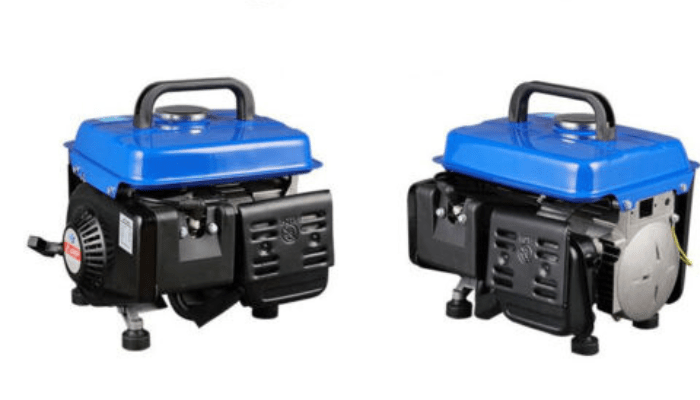Tiny generators known to power the homes of the least wealthy households and shops of the smallest businesses in Nigeria’s commercial capital, Lagos, have gone out of reach for many amid a rapid price surge.
“I better pass my neighbour,” the phrase used to describe the generators, now make their owners not only better than his neighbour but the entire neighbourhood.
The price of the generators, a vital household appliance in Africa’s most populous nation, due to unreliable public power supply, has jumped 40 percent to N140,000 this year from N100,000 in February 2023.
In the last two decades the price of the tiny generators, with less than 1KVA capacity, has surged more than tenfold from N10,000, showing how hyperinflation and other factors are putting basic commodities out of the reach of many Nigerians.
Blessing Abeti, a resident of Ikeja struggling to keep her small salon running, recently discovered the shocking new cost of a generator.
“N140,000! I nearly fainted,” she said on X formally known as Twitter. “Before, it was a way to show you had a little extra. Now, it’s about survival.”
Abeti’s story is a common one. Erratic power cuts have made generators indispensable for homes and businesses alike. The once-coveted status symbol has become a vital tool for navigating daily life.
“The price of generators has almost doubled in a year. People are buying anyway because they have no choice,” Funsho Abiodun, a generator dealer, told BusinessDay.
Data obtained from the United Nations International Trade Statistics Database (UN Comtrade) revealed that Nigeria has allocated a staggering $2.4 billion towards the procurement of generating sets over the past 26 years.
UN Comtrade, renowned as the foremost repository of global trade statistics, documents Nigeria’s imports of generators from 1996 to 2019. The apex of this expenditure occurred in 2013, with the country importing generating sets valued at $262.5 million, marking the highest expenditure in two decades.
For Hakeem Aliyu, a barber and cooking gas retailer in Lagos, getting a new generator to change the ailing one is a luxury he can’t afford. “I am still managing the small generator I bought in 2015 because the price of the same generator in the market is too much.”
Aliyu mentioned that he acquired the comparable generator set for N15,000 nine years ago. The barber intends to maintain and manage the current one.
The latest Nigeria SME Survey conducted by PricewaterhouseCoopers reveals that electricity expenses rank as the primary operational cost, trailed by rental and capital expenditures.
